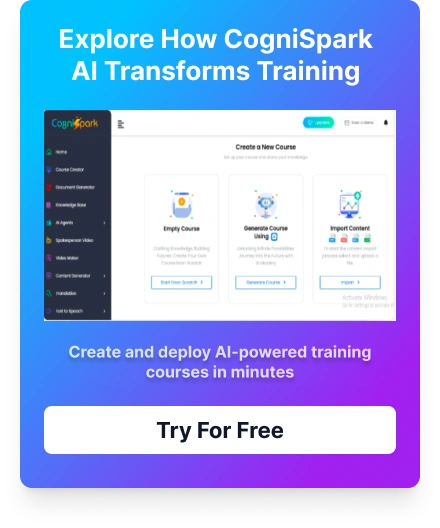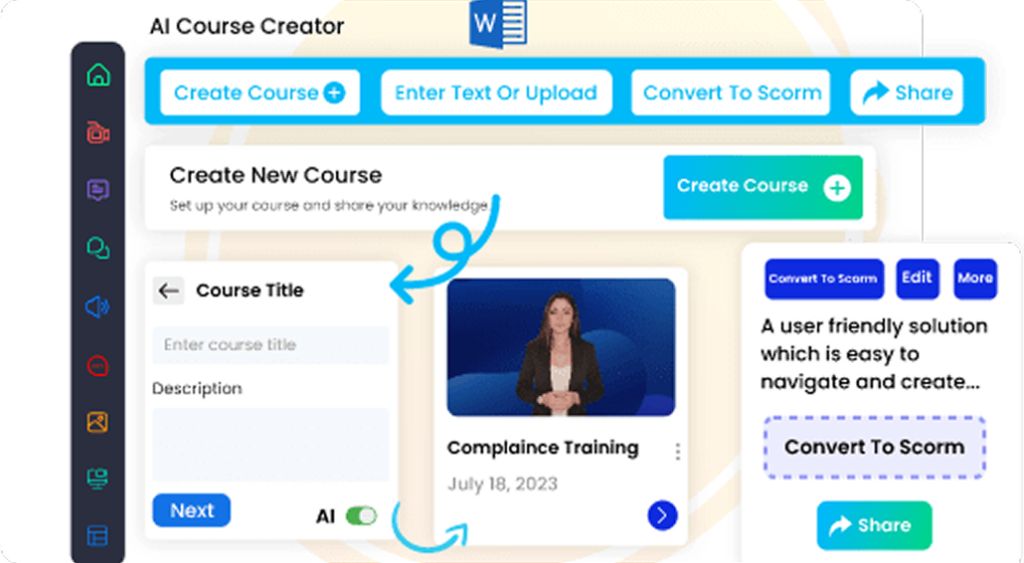Essential Foundational Knowledge for B2B Sales Team Members: Best Practices for Success
A successful B2B sales team starts with a solid foundation. Understanding your product, market dynamics, and sales process is crucial for driving results and building lasting client relationships. That’s where B2B sales training for employees becomes essential—equipping your team with the skills and strategies they need to succeed in competitive markets. This guide outlines the key areas where every B2B sales professional should focus to ensure a strong starting point and sustained success. Mastering these areas will enable your team to perform confidently and adapt smoothly to market changes, ultimately leading to more closed deals and long-term partnerships.
Developing expertise across core competencies is essential. From product knowledge to communication skills, each element plays a vital role in sales performance. Leveraging modern tools and continuous learning strategies ensures your team remains competitive and resilient. Implementing these best practices guarantees that your sales force is well-prepared to meet today’s challenges and capitalize on emerging opportunities.
1. Master Your Product Knowledge
Know the Features and Benefits Inside Out
A deep understanding of your product or service is fundamental. Sales professionals should confidently explain how their solutions address client pain points, differentiate from competitors, and add value. This solid knowledge builds credibility and enables more effective conversations. Being well-versed in features, advantages, and benefits allows reps to tailor their messaging to specific client needs.
Understand Your Product’s Use Cases
Identify various ways clients can utilize your product to achieve their goals. Recognize common scenarios, challenges, and the industries that benefit most from your offerings. Using this insight helps in customizing pitches and solutions, making interactions more relevant and compelling.
Stay Updated on Product Developments
Regular technological innovations, updates, and new features are common. Staying informed through ongoing training, internal communications, and documentation ensures your sales team can accurately present current capabilities and avoid spreading misinformation. This proactive approach helps maintain trust and expert authority.
In addition, consulting credible industry resources and maintaining close communication with product teams can deepen product expertise, positioning your team as trusted advisors rather than just pitch professionals.
Regular training ensures your team stays sharp and credible in client interactions. Explore our course catalog to access structured B2B sales training programs that keep skills current and effective.”
2. Deepen Your Market Understanding
Know Your Target Audience
Identify your ideal customer profile (ICP). Understand their industry, company size, decision-makers, and pain points. Using this knowledge, craft messages that resonate and demonstrate relevant value, increasing engagement and conversion rates.
Analyse Market Trends and Competitors
Stay informed about industry shifts, emerging technologies, and competitors’ strategies through industry reports, trade publications, and credible sources. This insight helps in positioning your solutions effectively, anticipating objections, and tailoring your approach accordingly.
Recognize Customer Pain Points and Needs
Engage in continuous research to understand specific client challenges. Customizing outreach and messaging based on their actual pain points increases relevance and likelihood of closing deals. Listening carefully uncovers motivations that are often not immediately obvious.
By mastering market insights, your team can proactively address concerns and position solutions as essential for client success.
Discover how our courses can align with your training goals and drive real results.
Learning Built Around Your Goals.
Schedule A Demo3. Develop a Consistent Sales Process
Map Out Your Sales Funnel
Create a clear, repeatable process that takes prospects from initial contact through closing and beyond. Detailing each stage—prospecting, qualification, needs analysis, proposal, negotiation, and post-sale follow-up—ensures consistency and ease of training.
Implement a Customer Relationship Management (CRM) System
Utilize CRM tools to track interactions, monitor progress, and manage follow-ups. Accurate data entry and usage streamline workflows and help maintain a consistent sales cadence. Proper CRM use empowers teams to prioritize efforts and optimize engagement timing.
Master the Art of Qualifying Leads
Use qualification criteria like Budget, Authority, Need, and Timeline (BANT). Efficient qualification prevents wasting time on low-probability prospects and ensures efforts are focused where conversion is most likely, boosting overall efficiency.
Use Data-Driven Sales Strategies
Regularly analyze KPIs such as conversion rates, deal size, and sales cycle length. Insights from data help in refining processes, addressing weaknesses, and replicating successful tactics to enhance overall team performance.
Having a clear, structured process built on solid data enables your sales team to work predictably and improve continuously.
4. Strengthen Communication and Listening Skills
Prepare Effective Sales Scripts and Pitches
Create adaptable scripts to introduce solutions confidently, handle objections, and emphasize value. Flexibility in delivery makes interactions appear natural and authentic, fostering trust.
Practice Active Listening
Attentive listening to client needs and concerns uncovers underlying issues. Effective listening builds rapport and helps craft tailored solutions, especially important in complex B2B sales.
Develop Empathy and Relationship Building
Building trust through genuine interactions involves understanding clients’ motivations. Demonstrating empathy, showing concern, and maintaining authentic engagement foster long-term relationships that lead to repeat business and referrals.
Harmonize communication style with the client’s preferences
Adjust tone, pace, and formality based on client cues to ensure comfort and receptivity during conversations.
5. Cultivate Resilience and Adaptability
Embrace Rejection as a Learning Opportunity
Rejection is inevitable. View setbacks as chances to improve, learn, and refine your approach. Resilience fuels persistence, which is crucial for long-term success.
Adapt to Changing Market Conditions
Stay flexible by regularly updating your strategies based on feedback, market trends, and customer insights. Adaptability ensures continued relevance and effectiveness.
Cultivate a Growth Mindset
Encourage continuous learning via training, webinars, and peer collaboration. A growth mindset fosters innovation and resilience—keys to thriving in dynamic environments.
Embedding resilience and adaptability within your team culture prepares your salesforce to face challenges constructively and seize new opportunities.
6. Leverage Data and Technology
Utilize Sales Enablement Tools
Equip your team with content management systems, proposal templates, and analytics platforms. These tools streamline workflows and support informed decision-making.
Conduct Regular Training and Skill Development
Invest in ongoing education on sales techniques, product updates, and industry trends. Well-trained teams adapt faster and perform better under market shifts.
Track and Analyze KPIs
Monitor lead conversion rates, sales cycle length, and customer retention. Data helps identify opportunities for improvement and areas needing support.
7. Understand Legal and Ethical Considerations
Know Industry Regulations and Compliance
Familiarize yourself with data privacy laws (like GDPR) and compliance standards to avoid legal pitfalls, build trust, and safeguard your reputation.
Maintain Ethical Sales Practices
Honest communication and transparent negotiations foster long-term relationships based on trust. Upholding high ethical standards enhances your brand’s credibility.
8. Cultivate Customer-Centric Mindset
Focus on Customer Success
Prioritize understanding and facilitating customer outcomes. Client success ensures renewals, upselling opportunities, and positive referrals.
Provide Exceptional Post-Sale Support
Maintain engagement through follow-ups, onboarding assistance, and proactive support, turning satisfied clients into advocates and repeat buyers.
9. Establish Clear Goals and Metrics
Set SMART Objectives
Define Specific, Measurable, Achievable, Relevant, and Time-bound goals for individual and team performance to motivate and focus efforts.
Regularly Review Performance
Hold periodic performance reviews to assess progress, identify gaps, and refine strategies based on reliable data.
10. Foster Collaboration and Knowledge Sharing
Collaborate Across Departments
Coordinate with marketing, product, and customer success teams to align messaging and gain cross-functional insights. Collaboration enhances sales effectiveness.
Share Best Practices Internally
Create platforms for sharing successful tactics, lessons learned, and challenges. Internal knowledge sharing accelerates team growth and cohesion.
Conclusion
Building a robust foundation within your B2B sales team involves continuous education, strategic process design, and a customer-centric mindset. B2B sales training for employees plays a crucial role in this process by enhancing product and market knowledge, sharpening communication skills, and equipping teams to leverage data effectively. When combined with resilience and adaptability, this training empowers your team to consistently deliver results. Integrating technology, promoting a culture of collaboration, and prioritizing ongoing development further reinforce long-term success. Investing in foundational excellence through targeted sales training creates a sustainable advantage, helping your organization thrive today and in the future.
Explore Our eLearning Course Catalog
Access 100+ fully editable, SCORM-compatible courses featuring an integrated AI Tutor and an in-built authoring tool. Seamlessly compatible with any LMS, these courses are designed to elevate your training programs.
Explore Course Catalog





















